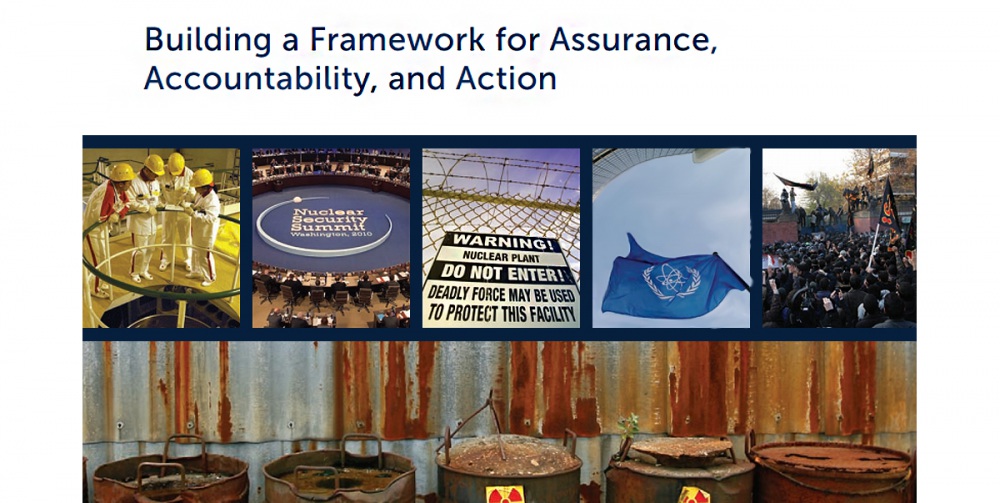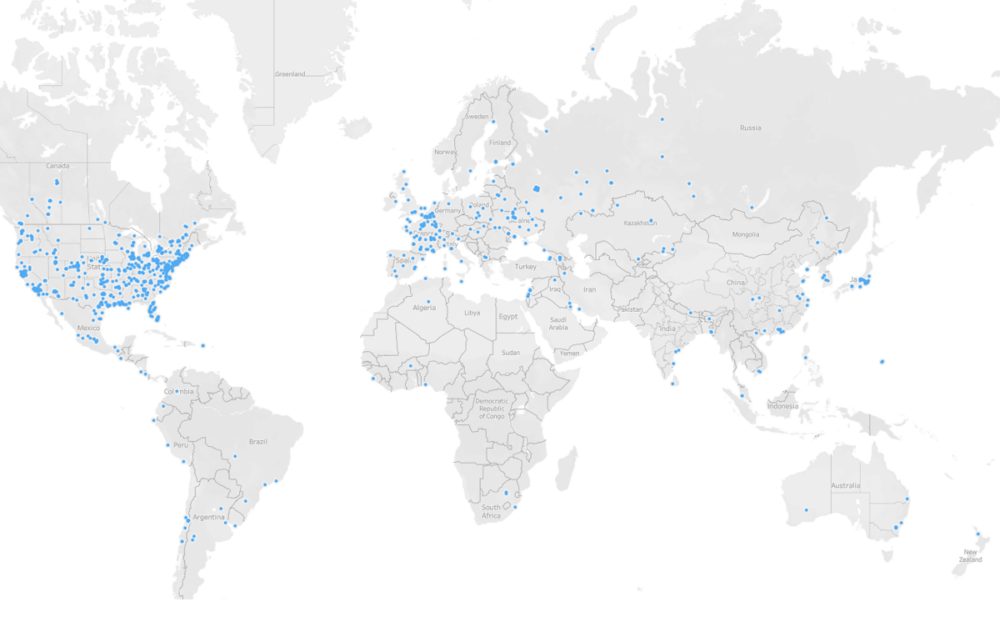
Sam Nunn
Co-Founder and Co-Chair, NTI
The NTI Index assesses the contribution of 32 states with one kilogram or more of weapons-usable nuclear materials toward improved global nuclear materials security conditions, using five categories: (a) Quantities and Sites, (b) Security and Control Measures, (c) Global Norms, (d) Domestic Commitments and Capacity, and (e) Societal Factors. An additional 144 states, with less than one kilogram of weapons-usable nuclear materials or none at all, are assessed on the last three of these categories. The Index includes three elements:
Read the foreword by Sam Nunn, NTI Co-Chairman
Building a Framework for Assurance, Accountability, and Action
The prospect is almost unthinkable: one of the world’s great cities devastated at the hands of terrorists armed with a crude nuclear weapon built out of materials stolen or bought on the black market.
On that dreadful day, with the consequences of nuclear catastrophe reverberating around the globe, citizens and world leaders alike would ask, “What could we have done, and what should we have done, to prevent it?”
Amid the destruction, we could not plausibly argue that the threat was not clear. In fact, there is evidence today that the elements of a perfect storm are in place: an ample supply of weapons-usable nuclear materials, some of it poorly secured, spread across 32 countries; an expansion of the knowledge and technical know-how needed to build a crude nuclear bomb accessible by the Internet or through rogue scientists; and the determination of terrorist organizations that have publicly stated their desire to acquire and use nuclear weapons. Allowing these dark clouds to come together could result in the deaths of tens or hundreds of thousands of people, the wide-scale destruction of property and agriculture, the disruption of markets and global commerce, and the constriction of civil liberties worldwide.
We know that to get the materials needed to build a bomb, terrorists will not necessarily go where there is the most material; they will go where the material is most vulnerable. That makes global nuclear security only as strong as the weakest link in the chain.
We also know that the best defense against catastrophic nuclear terrorism begins with securing weapons and materials in every country and at every facility where they are stored. The work to secure the materials, however, does not end there. All states must accept responsibility, and all must participate in the global effort to combat this threat.
Thankfully, there is some good news to report. Over the past 25 years, Ukraine, Belarus, and Kazakhstan returned the nuclear weapons they inherited from the former Soviet Union and joined the Nuclear Non-Proliferation Treaty; South Africa dismantled its nuclear weapons program; and the United States and Russia, through the Cooperative Threat Reduction program, turned their historic rivalry into a cooperative effort to reduce their nuclear arsenals and secure, consolidate, and eliminate nuclear materials worldwide—all in an effort to reduce the vulnerability of nuclear materials. To date, 19 countries, plus Taiwan, have eliminated their weapons-usable materials. The past decade has also seen the creation of new and innovative approaches to combating the threat, such as the Proliferation Security Initiative in which more than 70 countries participate.
In 2010, new momentum was injected into nuclear security efforts when leaders from 47 countries committed to take steps toward better nuclear materials security at the first-ever Nuclear Security Summit, held in Washington, D.C. This event helped build much-needed political awareness and increased capacity within many governments. Since then, a dozen additional countries have joined important international treaties on nuclear materials security, the United States and Russia have destroyed enough highly enriched uranium to make thousands of nuclear weapons. In addition, more than a dozen nuclear security training and research centers have opened around the world.
A second Nuclear Security Summit will be held in Seoul, South Korea, in March 2012, bringing added attention to the threat—and providing an opportunity for important additional progress toward preventing catastrophe. World leaders must seize this opportunity.
Despite this welcome new attention to the threat, however, many governments face stark political and financial challenges and, as a result, still struggle to secure the dangerous materials that can be used to build nuclear weapons. We hope the NTI Nuclear Materials Security Index can serve as a solid foundation to help inform that urgent and ongoing work.
NTI and the Economist Intelligence Unit (EIU) created the NTI Index by developing five categories comprising 18 indicators to offer an initial objective assessment of the contribution of 176 countries toward global nuclear materials security. With this Index, NTI is proposing a framework that we hope will define the essential elements of a greatly strengthened global nuclear materials security program, spark an international discussion about priorities required to strengthen security, and, most importantly, encourage governments to provide assurances and take actions to reduce risks.
To be clear, the Index is not a facility-by-facility review of “guns, guards, and gates” or an on-the-ground review of materials control and accounting practices. These are all crucial measures, but their effectiveness must be evaluated by governments. The Index takes a necessarily broad view of security and assesses and scores each state across a range of publicly available indicators of a state’s security practices and conditions.
At this time, governments and international institutions have not undertaken this kind of global assessment of nuclear materials security. Over time, this NTI Index can be improved, and we hope that, at some point, comprehensive updates will be performed on a regular basis by an independent international body. Until that occurs, NTI intends to update the Index periodically.
To develop a credible and useful Index, NTI and the EIU relied on a panel of international experts and advisors. Members included people who have been directly responsible for nuclear security at facilities and in governments as well as people who have worked on nuclear security issues in academia and at international organizations. NTI also conducted briefings with and sought feedback from governments and a host of other experts worldwide. This support strengthened the intellectual framework for the Index and enhanced its accuracy.
Although the Index ranks countries, it is not about congratulating some and chastising others. Instead, it highlights that all countries can and must do more to strengthen security around the world’s most dangerous materials. To that end, the NTI Index offers priorities and actionable recommendations. It should be used as a tool and as a resource for improvement, not merely as a rating system. In the future, this Index can become more helpful and accurate, but only if governments participate in filling gaps and correcting errors that result from a lack of transparency.
In the meantime, this NTI Index challenges governments worldwide to respond to the threat by taking appropriate steps to strengthen security conditions. As citizens and as leaders, we need to ask ourselves this question: If we have a catastrophic nuclear terrorist attack on Moscow or New York, on Tokyo or Tel Aviv, on Jakarta or Brussels, or on any other city in the world, what steps would we wish we had taken to prevent it? Securing weapons-usable nuclear materials around the globe is the most critical step.
Sign up for our newsletter to get the latest on nuclear and biological threats.
“The bottom line is that the countries and areas with the greatest responsibility for protecting the world from a catastrophic act of nuclear terrorism are derelict in their duty,” the 2023 NTI Index reports.
The NTI Index is recognized as the premier resource and tool for evaluating global nuclear and radiological security.
The only public database of its kind, includes global nuclear & radiological security trends, findings, policy recommendations, and interactive visualizations.


